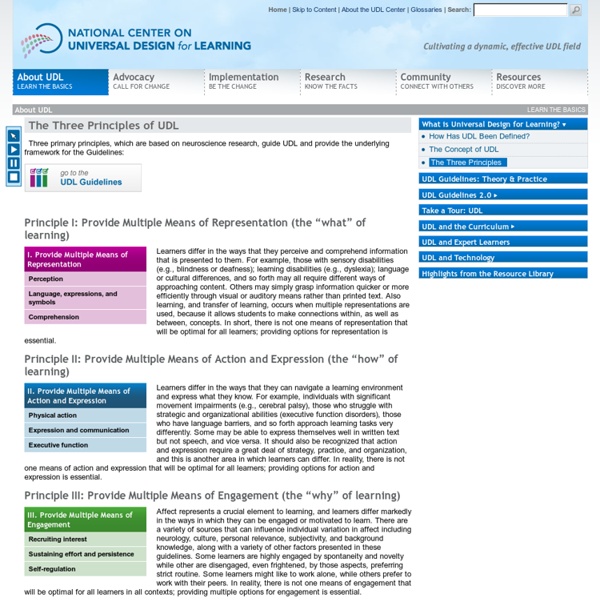151 Leading Sites for Elementary Educators » Elementary Education Degree
Today’s elementary school kids grew up in the digital age, and they love computer-based activities and learn from them easily. Learning and sharing online isn’t just for students though. There are hundreds of fantastic sites online to help elementary educators do their jobs as well. From educational videos to interactive games and even e-book publishers, classroom management advice, and teachable moments from teachers who blog, a driven elementary educator can find just about anything he or she needs among these 151 leading sites. The sites here aren’t listed in ranking order, as they all have different strengths and will meet different readers’ needs. They’re categorized for convenience, and every one of them is packed with great content. Many sites on elementary education do a good job of pulling together info from every class subject or just sharing advice on how teachers can work with the education system to provide the best learning experience to their youngsters.
Universal Design for Learning (UDL) | Special Education
Universal Design for Learning is a framework that provides educators with a structure to develop their instruction to meet the wide range of diversity among all learners. UDL is a research-based framework that suggests that a one-size-fits-all approach to curricula is not effective. UDL was inspired by universal design in architecture, where design features intended for individuals with disabilities have had unexpected benefits for the general population (e.g. curb cut outs designed for wheelchair access have benefits for strollers, rolling luggage, skateboarders, etc.) A concise definition of Universal Design for Learning was provided by the Higher Education Opportunity Act of 2008 (HEOA) The term UNIVERSAL DESIGN FOR LEARNING means a scientifically valid framework for guiding educational practice that: Three Principles of Universal Design for Learning Questions about Universal Design for Learning Is UDL just for students with disabilities? Universal Design for Learning Examples
Why Suicide Has Become an Epidemic--and What We Can Do to Help
WHEN THOMAS Joiner was 25 years old, his father—whose name was also Thomas Joiner and who could do anything—disappeared from the family’s home. At the time, Joiner was a graduate student at the University of Texas, studying clinical psychology. His focus was depression, and it was obvious to him that his father was depressed. Six weeks earlier, on a family trip to the Georgia coast, the gregarious 56-year-old—the kind of guy who was forever talking and laughing and bending people his way—was sullen and withdrawn, spending days in bed, not sick or hungover, not really sleeping. Joiner knew enough not to worry. What makes some people, such as Vincent van Gogh, desire death in the first place? Try Newsweek for only $1.25 per week But Dad had left an unmade bed in a spare room, and an empty spot where his van usually went. The investigators found slash marks on his father’s wrists and a note on a yellow sticky pad by the driver’s seat. Writer David Foster Wallace (d. Artist Mark Rothko (d.
The Costs of Overemphasizing Achievement
SCHOOL ADMINISTRATOR November 1999 The Costs of Overemphasizing Achievement By Alfie Kohn Only extraordinary education is concerned with learning; most is concerned with achieving: and for young minds, these two are very nearly opposite. -- Marilyn French I. Part of the problem is that we shy away from asking the right questions and from following the data where they lead. From another perspective, though, the real problem isn’t grade inflation--it’s grades, which by their very nature undermine learning. First, students tend to lose interest in whatever they’re learning. The data to support these findings are available to anyone who cares to look, and the practical problems of eliminating grades--including the challenge of helping parents understand the benefit to their children of doing so--are solvable for anyone who is committed to the task. All of these features represent the very opposite of meaningful assessment. In fact, researchers could tell you this, too. Why? II. 1. 2. 3. 4. 5.
Social-Emotional Needs Entwined with Students' Learning, Security
UserID: iCustID: IsLogged: false IsSiteLicense: false UserType: anonymous DisplayName: TrialsLeft: 0 Trials: Tier Preview Log: Exception pages ( /ew/articles/2013/01/10/16environment.h32.html ) = NO Internal request ( 192.99.46.37 ) = NO Open House ( 2014-04-27 21:34:33 ) = NO Site Licence : ( 192.99.46.37 ) = NO ACL Free A vs U ( 2100 vs 0 ) = NO Token Free (NO TOKEN FOUND) = NO Blog authoring preview = NO Search Robot ( Firefox ) = NO Purchased ( 0 ) = NO Monthly ( dd343d2d-87d4-1ac0-8865-19ca2d84923e : 3 / 3 ) = NO 0: /ew/articles/2012/09/12/03newell.h32.html 1: /edweek/DigitalEducation/2010/12/panelists_from_the_white_house.html 2: /edweek/inside-school-research/2012/09/study_young_children_explore_a.html Access denied ( -1 ) = NO
International: The lottery of life
Warren Buffett, probably the world’s most successful investor, has said that anything good that happened to him could be traced back to the fact that he was born in the right country, the United States, at the right time (1930). A quarter of a century ago, when The World in 1988 light-heartedly ranked 50 countries according to where would be the best place to be born in 1988, America indeed came top. But which country will be the best for a baby born in 2013? To answer this, the Economist Intelligence Unit (EIU), a sister company of The Economist, has this time turned deadly serious. It earnestly attempts to measure which country will provide the best opportunities for a healthy, safe and prosperous life in the years ahead. A forward-looking element comes into play, too. Despite the global economic crisis, times have in certain respects never been so good. Where to be born in 1988 Boring is best Laza Kekic: director, country forecasting services, Economist Intelligence Unit



